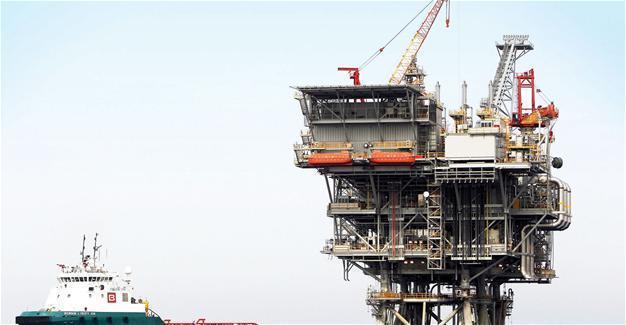Israel opens gas search tender after Turkey talk
JERUSALEM

Israel has invited bids for 24 new offshore oil-and-gas exploration licenses it hopes will bring more major finds in the Mediterranean as it strives to become an energy exporter. “We are offering for exploration half of our economic waters in 24 blocks,” Energy Minister Yuval Steinitz said, announcing the offer which closes on April 21.
“Estimates are that most of the natural gas in Israel’s economic waters is yet to be found,” he said at a news conference, adding the U.S. energy department shared that view. The government hopes the new blocks turn up discoveries comparable to the Tamar and Leviathan natural gas fields found off its coast in recent years. Israel hopes the Leviathan field and others to come will eventually allow it to become a gas exporter, which could provide it with additional leverage in the turbulent Middle East. In September, neighboring Jordan signed a contract to buy gas from Leviathan for the first time and Steinitz said there had been contacts with the Egyptians over a possible sales deal.
“I think that the Egyptian option realistically exists,” he said, without giving details. He said that prospects of a major gas deal had also helped reconciliation talks with Turkey after a bitter six-year rift. Last month, Steinitz met his Turkish counterpart Berat Albayrak in Istanbul. It was the highest level official meeting since the two countries normalized ties in June after a 2010 crisis triggered by Israel’s deadly storming of a Gaza-bound ship.
Israeli minister: Turkey stable “We decided to move ahead on the plan for a gas export pipeline from Israel to Turkey, both for the benefit of the Turkish economy but also for piping onward to Europe through the Turkish system,” Steinitz said. At a news conference on Nov. 15, Steinitz was asked if he saw Ankara as
a “stable customer.” “The whole world has not been particularly stable in recent years but that is the world in which we live,” he said. “I think that the Turkish economy is very stable and very strong.”
But he said his strategy on gas exports was to hedge Israel’s bets. “I want more than one export option. I want us to have at least two or maybe three pipelines that will allow export not only to this region but also... to Europe.”
One of his plans, he said, was for “the longest marine pipeline in the world” to run from Israel through Greek Cyprus and Greece to Italy and into the European infrastructure. Steinitz said that his idea was at first thought to be technically impossible and economically unviable but a European Union study had since found it to be feasible. “There was a decision with the Europeans for continued dialogue for a long gas line from Israel to Italy.”
 Israel has invited bids for 24 new offshore oil-and-gas exploration licenses it hopes will bring more major finds in the Mediterranean as it strives to become an energy exporter. “We are offering for exploration half of our economic waters in 24 blocks,” Energy Minister Yuval Steinitz said, announcing the offer which closes on April 21.
Israel has invited bids for 24 new offshore oil-and-gas exploration licenses it hopes will bring more major finds in the Mediterranean as it strives to become an energy exporter. “We are offering for exploration half of our economic waters in 24 blocks,” Energy Minister Yuval Steinitz said, announcing the offer which closes on April 21.